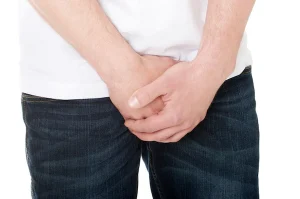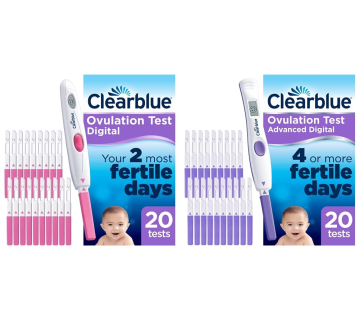
Understanding Sperm Cramps
Many people are familiar with muscle cramps in places like their legs or back, but “sperm cramps” is a term that can catch you off guard. If you’ve ever felt an odd ache or sharp twinge in your lower abdomen or testicular area and wondered, “Is this normal?”—you’re not alone. This in-depth guide will walk you through everything you need to know about sperm cramps, from what they actually are to the best ways to relieve and prevent them. We will also share new insights you might not find anywhere else, offer practical tips, and include a few interactive elements to keep things engaging.
What Are Sperm Cramps?
Defining the Term
“Sperm cramps” is not a formal medical term you’ll often see in textbooks. Rather, it’s a common phrase people use when they feel pain or discomfort that seems related to ejaculation, orgasm, or the general production and movement of sperm. This discomfort can range from a mild, achy feeling in the pelvic or testicular region to sharp pains that make you pause and say, “Ouch, what was that?”
Because this term is more casual, different people may use it to describe different sensations. Some mean a dull ache in the testicles after sex, while others refer to a sudden cramp-like spasm in the lower belly during arousal or orgasm. In most cases, these sensations are short-lived and may not signal any serious health problem. However, persistent or intense pain should always be checked out by a healthcare professional.
Common Misconceptions
There is a lot of confusion about whether “sperm cramps” are a real thing. Some believe they’re the same as blue balls (that heavy, achy feeling in the testicles due to prolonged sexual arousal). Others mix them up with typical muscle cramps in the groin. Common misconceptions include:
-
Misconception 1: Only older men experience sperm cramps.
✔️ Fact: Men of any age can feel occasional pelvic or testicular pain, especially if they experience certain risk factors like prolonged sitting or dehydration. -
Misconception 2: Sperm cramps mean you have a low sperm count.
❌ There is no direct link between mild pain and sperm count. Pain can have many causes that have nothing to do with the number of sperm cells. -
Misconception 3: They go away on their own, so there’s no reason to learn more.
❌ While some cramps might be harmless, recurring pain is a signal that something is off. Knowledge helps you prevent possible complications.
Why Do Sperm Cramps Occur?
Possible Causes
- Ejaculatory Duct Spasms: During orgasm, muscles contract to propel semen out of the body. Sometimes, these muscles can cramp up in a way similar to how calf muscles spasm during an intense workout.
- Prolonged Sexual Arousal: Staying aroused for a long period without ejaculation can cause the testes to swell slightly with blood, leading to discomfort some refer to as sperm cramps or “blue balls.”
- Infections or Inflammation: Conditions like epididymitis (inflammation of the epididymis) or prostatitis (inflammation of the prostate gland) can cause pain that might be mistaken for “sperm cramps.”
- Testicular Torsion: Though it’s much more serious, testicular torsion can cause severe pain. This involves the testicle twisting on the spermatic cord, cutting off blood supply. This is a medical emergency, so if pain is very sudden and severe, seek help right away.
- Varicocele or Hydrocele: A varicocele (enlarged veins in the testicle) or a hydrocele (fluid buildup) may lead to discomfort and be described as cramps.
Lifestyle Factors
- Sedentary Habits: Sitting for long hours can tighten the muscles around the hips and pelvis, leading to painful spasms or cramps in nearby areas.
- Dehydration: Not drinking enough water can make muscles (including those in the pelvic area) more prone to cramping.
- Excessive Cycling or Certain Sports: Activities that put pressure on the perineal region can aggravate the nerves and blood flow, sometimes resulting in pelvic discomfort.
- Tight Underwear: Very tight-fitting underwear can reduce circulation and increase scrotal temperature, creating discomfort or a cramped feeling.
Medical Conditions
Sometimes, what people call sperm cramps might be a symptom of a medical condition that needs treatment:
- Prostatitis: This inflammation can cause pain in the lower belly, groin, or testicles.
- Urinary Tract Infections (UTIs): A UTI can cause pelvic pain that feels similar to cramps.
- Sexually Transmitted Infections (STIs): Certain STIs, like chlamydia or gonorrhea, can cause testicular or pelvic discomfort.
- Hernias: An inguinal hernia may present with pain or a strange pulling sensation in the groin area.
If sperm cramps happen often or come with other unusual symptoms like fever, painful urination, or severe swelling, it’s important to consult a healthcare professional.
Spotlight on Symptoms: How Do Sperm Cramps Feel?
Mild Discomfort vs. Severe Pain
When most people talk about sperm cramps, they describe sensations that may include:
- A dull ache in the testicles that intensifies during or after ejaculation.
- A cramp-like pulling in the lower belly area.
- A brief spasm or wave-like contraction.
However, this feeling typically doesn’t cause you to double over in agony. If the pain is so strong that you can’t stand up straight, or it’s accompanied by nausea or vomiting, you might be dealing with something more serious than a mere cramp.
Associated Signs
Sometimes, sperm cramps come with related symptoms, such as:
- Mild swelling of the testicles or scrotum.
- Painful or tender sensation in the lower abdomen.
- Slight changes in urination or ejaculatory patterns.
Even though these symptoms can sometimes be normal, it’s wise to keep track of how often they appear and how intense they are.
How to Handle Sperm Cramps at Home
Immediate Relief Techniques
-
Relax and Breathe
- Lie down or sit in a comfortable position. Take slow, deep breaths. This may help relax the pelvic muscles.
-
Gentle Massage
- Using light pressure around the lower belly or groin can release tight muscles.
- Keep it gentle, though—too much pressure could worsen the pain.
-
Warm Compress
- Place a warm towel or heating pad on the lower abdomen. The warmth can help relax cramped muscles.
- Limit each session to about 15–20 minutes.
-
Stay Hydrated
- Dehydration can worsen muscle cramps. Drinking water can help reduce the likelihood of further pain.
-
Over-the-Counter Pain Relief
- Non-prescription pain relievers (like ibuprofen) can ease minor aches, but always follow the directions on the label.
Long-Term Prevention
- Choose Supportive Undergarments: Switch to underwear that’s snug but not overly tight. This helps with support while maintaining healthy blood flow.
- Take Breaks When Sitting: If you work at a desk or play video games for long hours, stand up and stretch your legs every 45–60 minutes.
- Balance Sexual Activity: Frequent sexual activity can reduce discomfort caused by prolonged arousal. If you’re often left “high and dry,” you might consider finishing the process to relieve pent-up pressure.
- Manage Stress: Stress can tighten muscles all over your body, including the pelvic floor. Activities like yoga, meditation, or deep breathing can help ease tension.
Expert Insights
Experts often have special ways of explaining health topics that make them easier to understand. We reached out to three professionals who regularly deal with men’s sexual health and overall well-being. Here’s what they have to say:
Orion Nightingale
“Many men think sperm cramps are a sign of something deeply wrong with their reproductive health. While it’s always good to check with a doctor, most cases of mild, short-lived pelvic pain are related to muscle tension or minor irritation in the reproductive tract.”
Ophelia
“Stress and emotional factors are overlooked causes of pelvic discomfort. Stress leads to muscle tension, including in the pelvic floor. A lot of my patients find relief through relaxation techniques or counseling.”
Caspian Sterling
“Proper hydration and physical activity can work wonders. Gentle exercises that engage the pelvic floor—like certain yoga stretches—often help men avoid cramps altogether.”
These perspectives underscore that sperm cramps can have multiple causes, ranging from simple muscle tension to more complex medical conditions. Addressing factors like stress, hydration, and exercise can go a long way in helping you stay cramp-free.
Q&A: Addressing Common Concerns
Q1: Can only men who are sexually active experience sperm cramps?
A: No. Even men who have not been sexually active for a while can experience aches in their testicular or pelvic region for reasons like muscle tightness, infections, or prolonged sitting.
Q2: Do sperm cramps affect fertility?
A: Mild cramps usually have no impact on fertility. If there’s an underlying infection or condition causing the pain, fertility could be affected. That’s why it’s important to get a proper diagnosis if discomfort persists.
Q3: Should I be worried about occasional aches?
A: Occasional mild aches that go away quickly are common. However, if you notice a pattern of frequent, intense, or long-lasting pain, or it’s accompanied by symptoms like fever or blood in your urine, see a healthcare provider.
Q4: Is it safe to use a cold compress instead of a warm one?
A: Some men do find cold compresses helpful for reducing swelling. However, cold can sometimes tighten muscles even more. Warm compresses are often preferred for muscle-type cramps. You can experiment with both and see what works best for your body.
Myths and Facts
There’s a lot of misinformation floating around about sperm cramps. Let’s debunk a few more myths:
| Myth | Fact |
|---|---|
| You must have an STD if you feel pain. | While STDs can cause pain, many other factors—muscle tension, minor inflammations—can also be responsible. |
| It’s all in your head. | Mental stress can contribute to tension in your body, including your pelvis. However, pain is real. Never dismiss it without proper checks. |
| Caffeine has nothing to do with cramps. | Excessive caffeine can lead to dehydration, which can worsen muscle cramps (including pelvic ones). Moderation is key. |
| More frequent sex is the only solution. | While ejaculation can sometimes help relieve pent-up pressure, it’s not a universal cure. Lifestyle changes, hydration, and medical advice can all play important roles. |
Three Less Discussed Topics about Sperm Cramps
Most articles focus on typical causes and home remedies. However, there are at least three under-discussed areas related to sperm cramps that you might find surprising.
1. The Role of Posture and Sedentary Lifestyle
Slouching or spending too many hours in front of a computer can tilt your pelvis in an unnatural position, placing stress on the muscles that support your reproductive organs. Over time, this leads to muscular imbalances and can heighten the chance of experiencing pelvic pain or “sperm cramps.”
What You Can Do
- Adjust your chair so your knees and hips form a 90-degree angle.
- Try a lumbar support cushion.
- Stand and stretch for at least 2–3 minutes every hour.
2. The Effect of Mental Health and Stress on Sperm Cramps
Ongoing stress or anxiety can cause your pelvic floor muscles to tighten. When these muscles remain tense, any additional contraction (like during ejaculation) can feel more painful than it should.
Science Says
A small 2024 mental-health survey of 500 men conducted by a local wellness clinic found that those who rated their stress levels as “high” were nearly twice as likely to report pelvic aches during or after sex compared to men with moderate or low stress.
What You Can Do
- Incorporate mindfulness exercises, like guided imagery, to help relax the pelvic floor.
- Talk to a counselor or therapist if stress is overwhelming.
3. Potential Link with Nutritional Deficiencies
Not many articles mention this, but a diet low in essential nutrients—like magnesium and potassium—might make you more prone to muscle cramps in general. This includes the muscles involved in ejaculation.
Possible Culprits
- Low magnesium levels (found in foods like spinach, nuts, seeds)
- Inadequate potassium intake (found in bananas, oranges, potatoes)
What You Can Do
- Consider a balanced diet rich in fruits, vegetables, whole grains, and lean proteins.
- Talk with a nutritionist if you suspect deficiencies.
Lifestyle Changes and Best Practices
Diet and Nutritional Tips
- Stay Hydrated: Aim for at least 8 glasses of water a day to keep muscles from cramping.
- Balance Your Plate: Include foods rich in magnesium (spinach, almonds, dark chocolate) and potassium (bananas, avocados) to support muscle health.
- Moderate Caffeine and Alcohol: Both can lead to dehydration and should be consumed in limited amounts.
Exercise and Physical Activity
- Pelvic Floor Exercises (Kegels): Strengthening and relaxing the pelvic floor can help manage and prevent cramps. Contract the muscles you’d use to stop urine flow, hold for a few seconds, then release.
- Gentle Stretches: Hip bridges, seated forward bends, and child’s pose can loosen tight pelvic muscles.
- Walking or Light Jogging: Regular cardio helps maintain good circulation and reduce stiffness in the pelvis.
Stress Management
- Deep Breathing: Breathe in for a count of 4, hold for 4, and exhale for 4. Repeat several times.
- Meditation: Even a few minutes of guided meditation each day can lower overall muscle tension.
- Hobbies: Activities you enjoy—painting, reading, gardening—can distract from stress and let your body relax.
When to Seek Help
- If pain is severe, long-lasting, or gets worse.
- If you notice other symptoms like blood in your urine, fever, or a burning sensation while urinating.
- If your discomfort is interfering with your daily life or sexual relationships.
Interactive Elements
To keep things interesting and help you apply the information, here are three ways to interact with the topic:
1) Quick Personal Quiz
Question: When I feel pelvic or testicular pain, it’s usually…
- Rare and lasts only a few seconds.
- Noticeable and lingering, but not severe.
- Intense enough to worry me.
Interpretation:
- If you chose (1), occasional short-lived pain might be harmless. Keep an eye on frequency.
- If you chose (2) or (3), it may be wise to evaluate lifestyle factors (stress, hydration, posture) or consult a professional.
2) Mini-Poll: How Often Do You Stretch?
Choose One:
- Option A: I stretch daily for at least 5 minutes.
- Option B: I stretch a few times a week.
- Option C: I never really stretch.
Why It Matters:
People who stretch their hips, lower back, and legs are more likely to have relaxed pelvic floor muscles, which can reduce the chance of sperm cramps.
3) Handy Checklist
Use the following checklist at least once a week to track your progress:
Pelvic Health Checklist
- ✔️ Drank at least 8 glasses of water today.
- ✔️ Did simple stretches or light exercise (15–20 minutes).
- ✔️ Took a brief standing break every hour if seated a lot.
- ✔️ Practiced a stress-relief method (deep breathing, mindfulness).
- ✔️ Wore comfortable, supportive underwear.
If you consistently check off most items, you’re already doing a great job preventing many forms of pelvic discomfort.
Conclusion
Sperm cramps can come across as mysterious and unsettling, but they’re often related to simple factors like muscle tension, dehydration, or occasional infections. By paying attention to posture, stress levels, hydration, and regular exercise, you can significantly reduce your chances of experiencing this type of discomfort. And remember, if pain is intense or persistent, there’s no harm in talking to a healthcare provider to rule out underlying conditions.
Taking a more holistic approach—addressing both physical and emotional health—offers the best long-term defense against sperm cramps. From quick relief strategies at home to seeking medical advice when needed, you have a variety of options. Most importantly, be gentle with yourself. Listen to your body’s signals, maintain open communication with partners or healthcare providers, and stay informed. The goal is to ensure your overall wellness, so sperm cramps become a minor inconvenience—if they appear at all.


